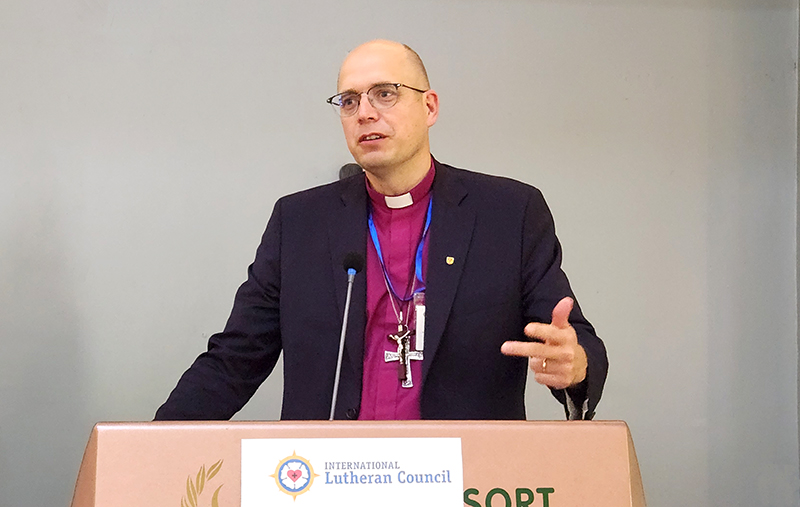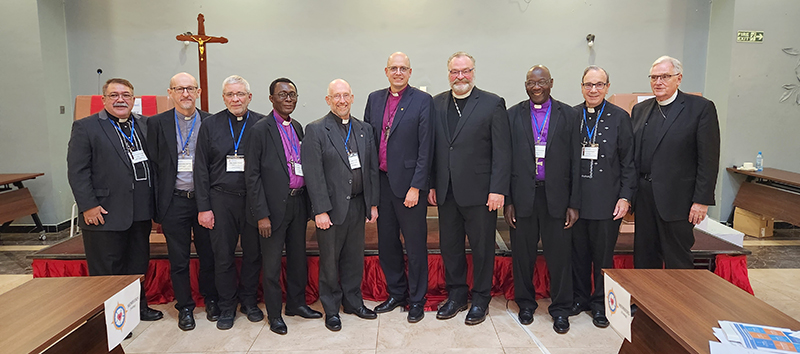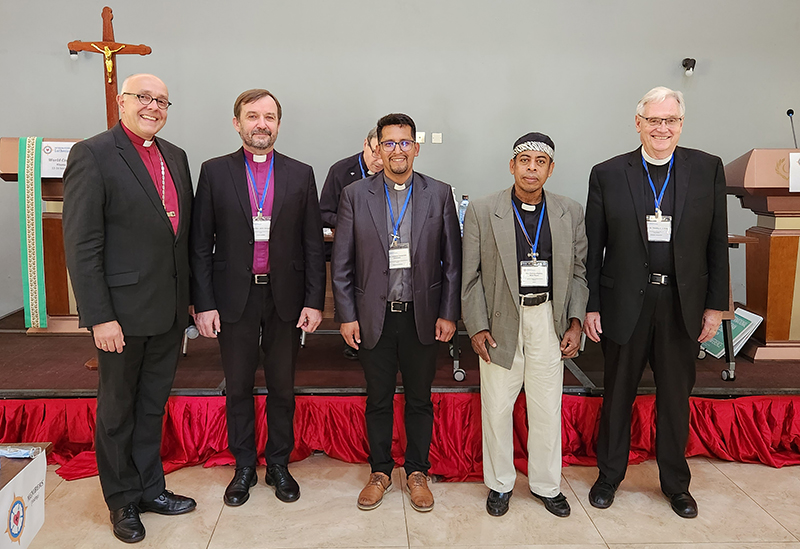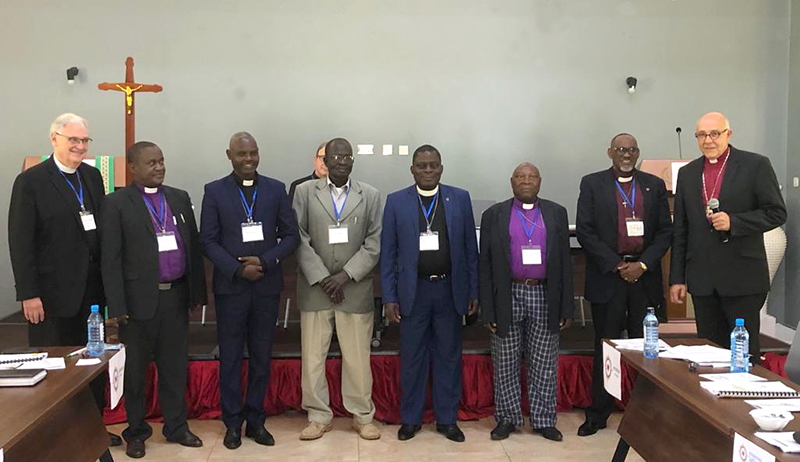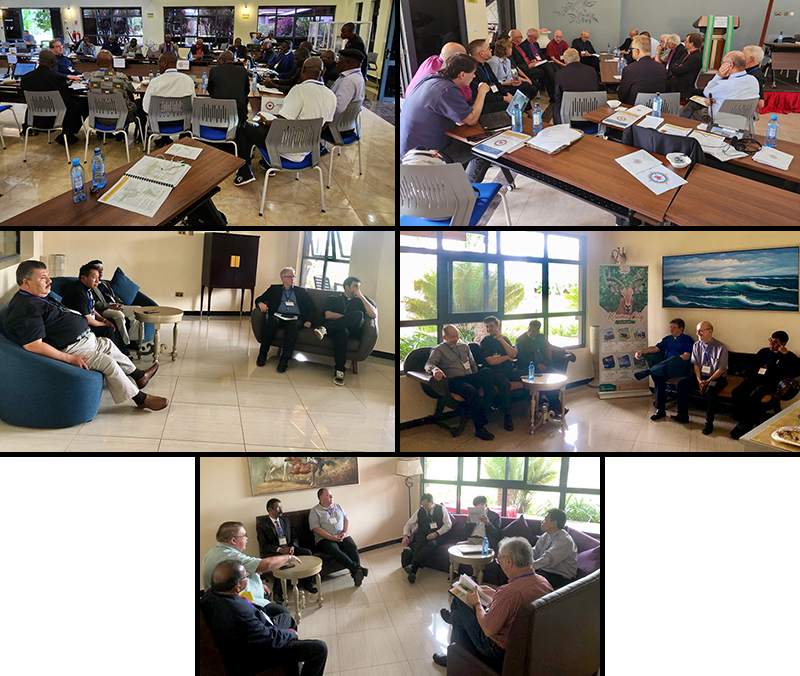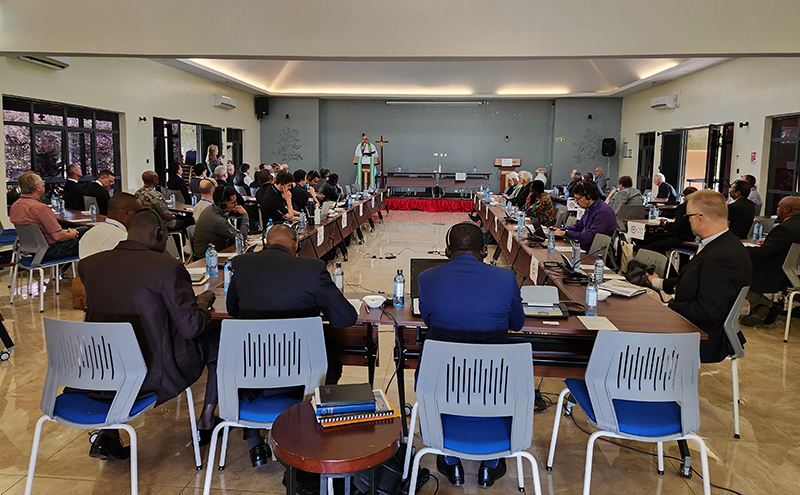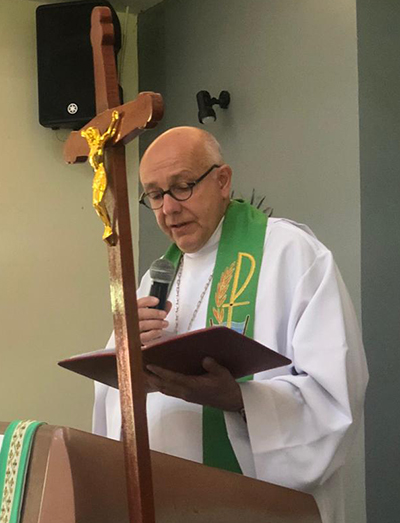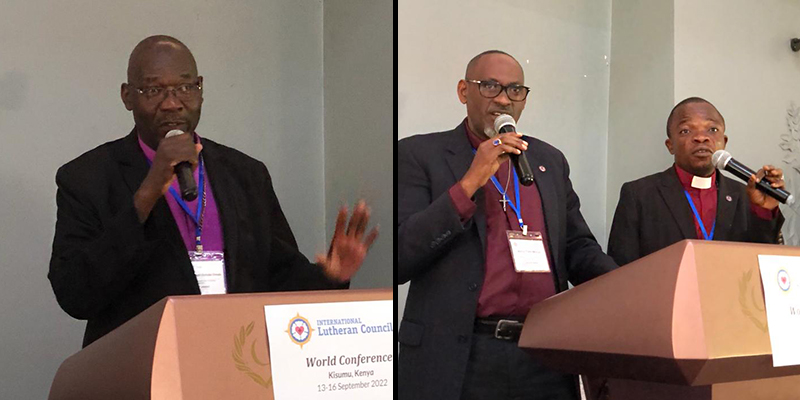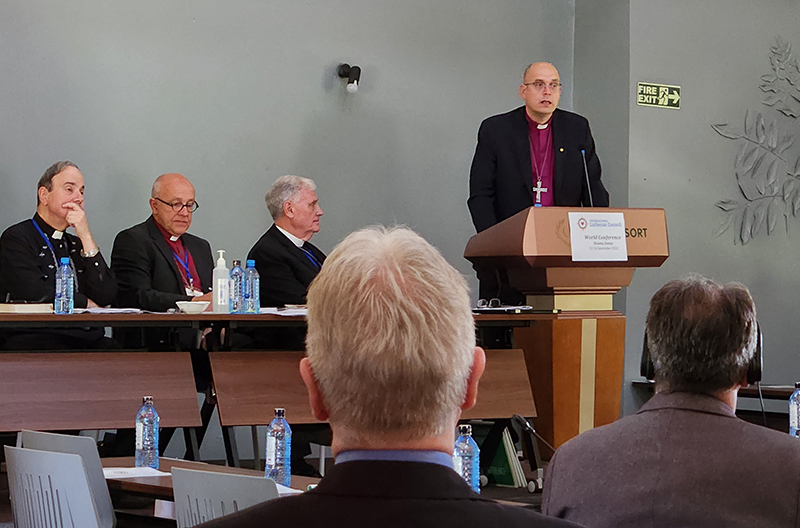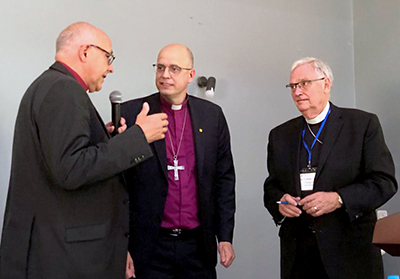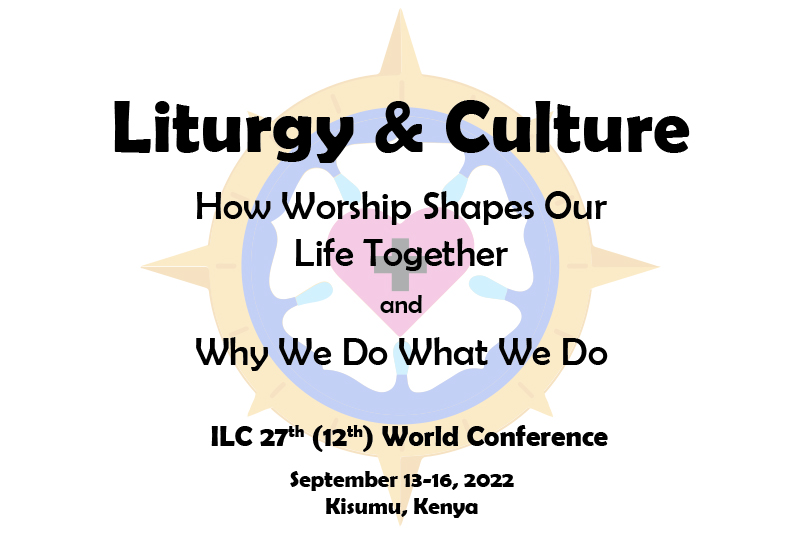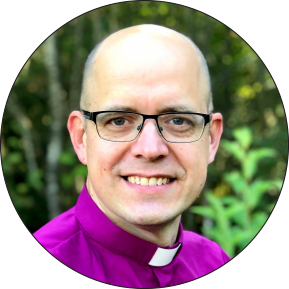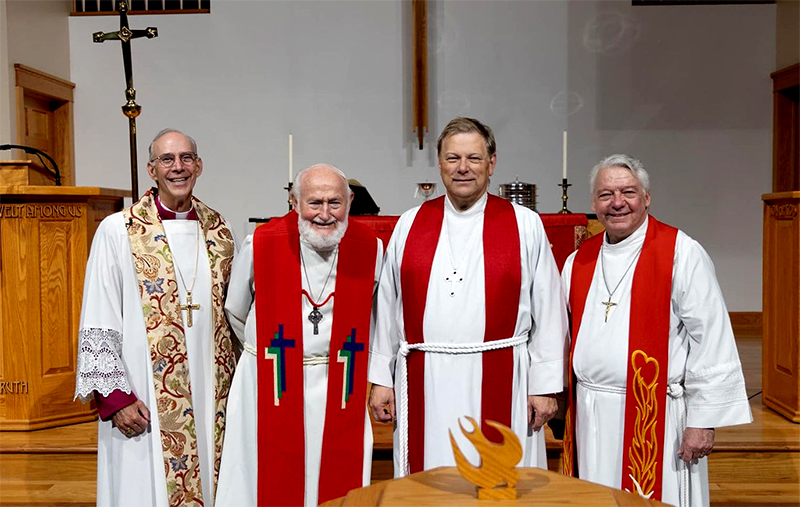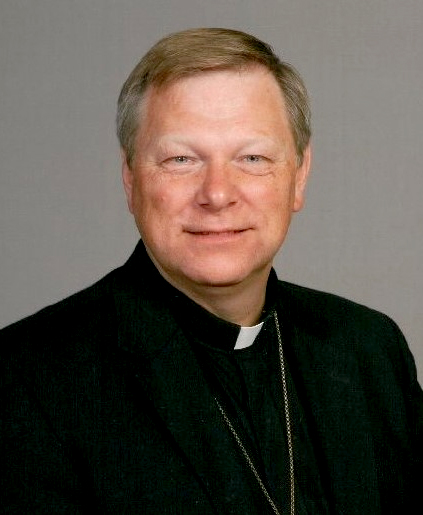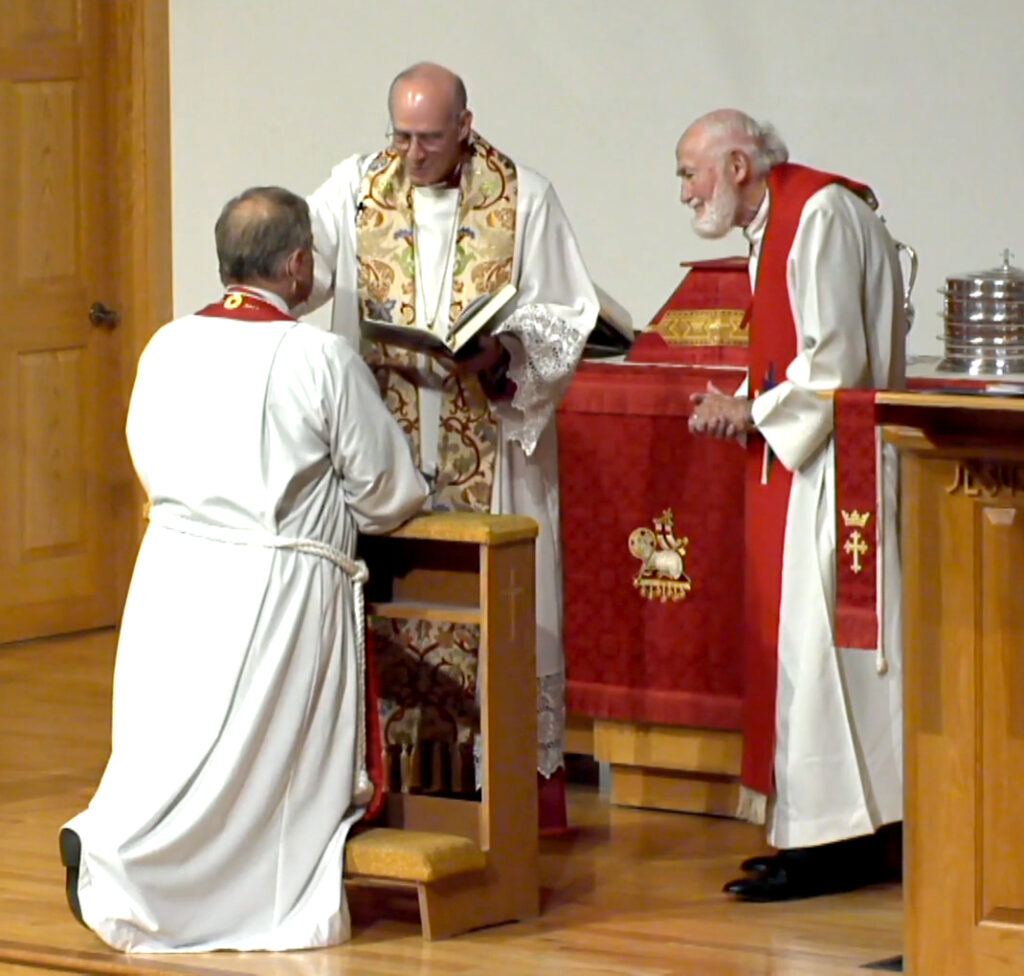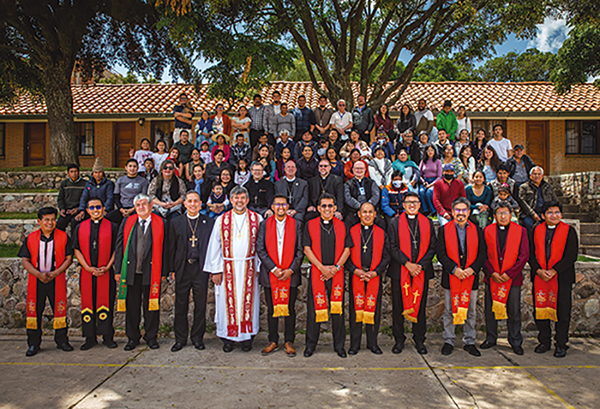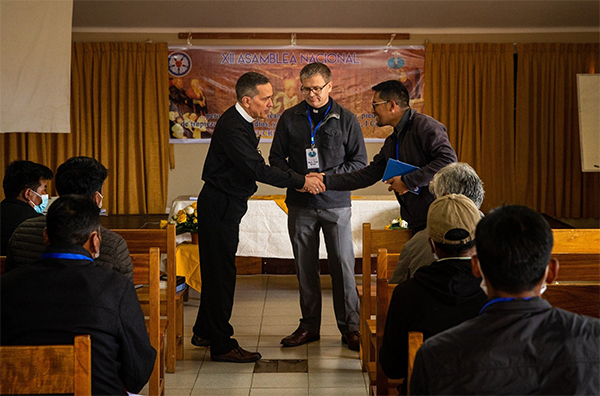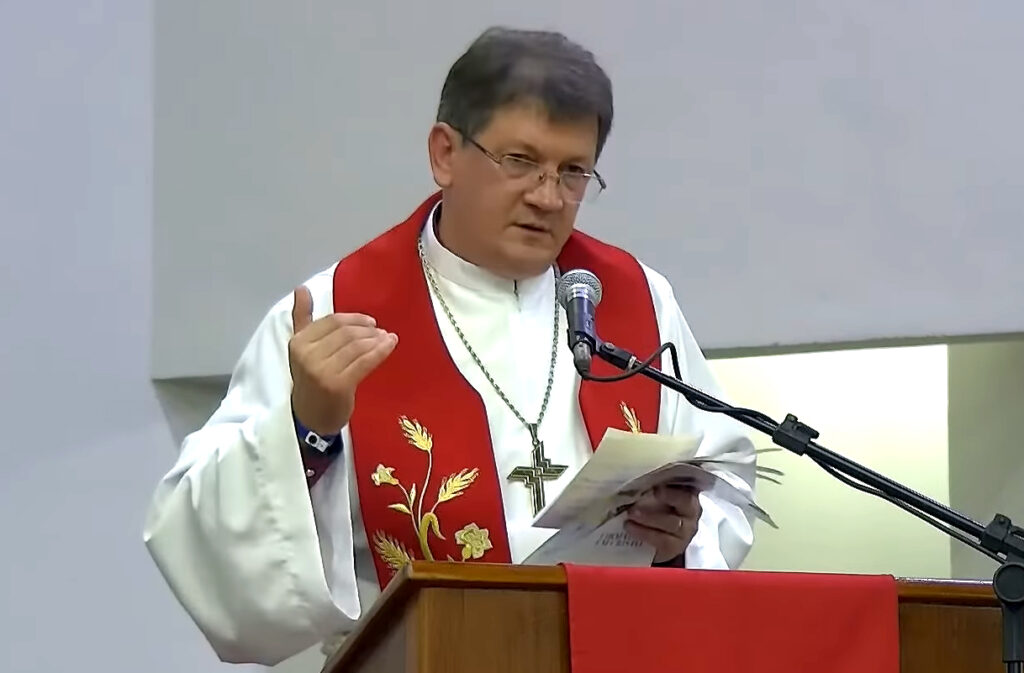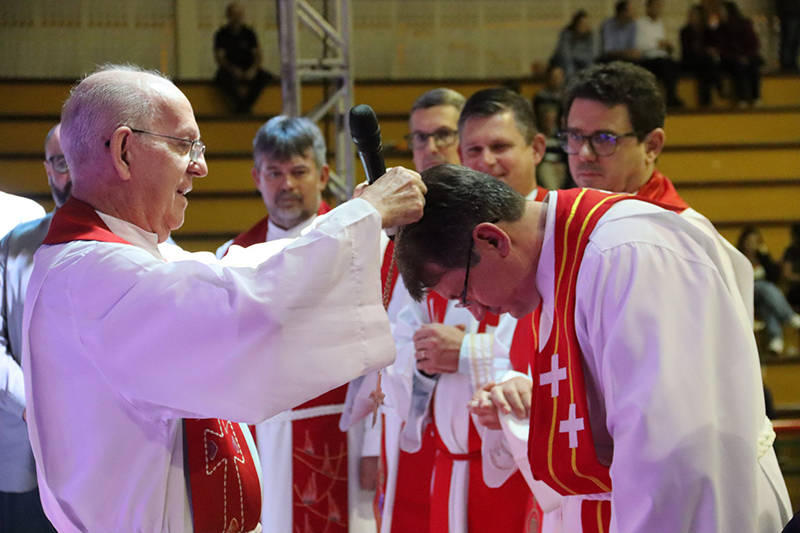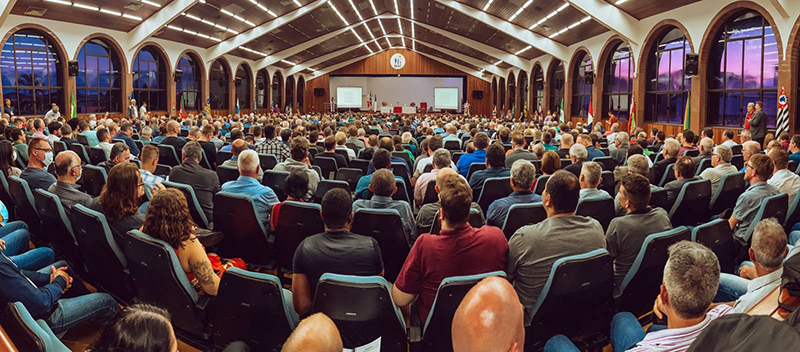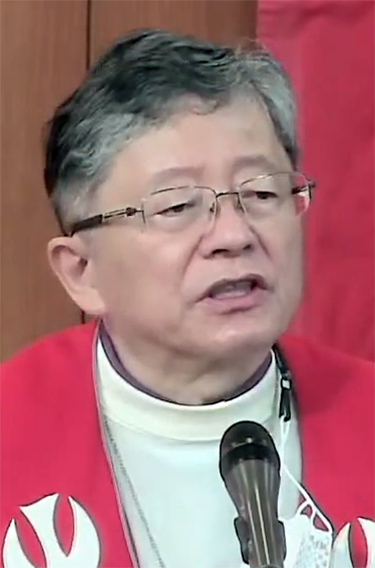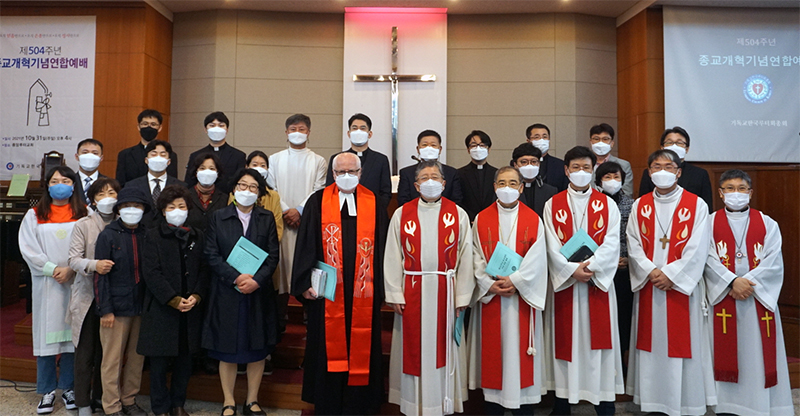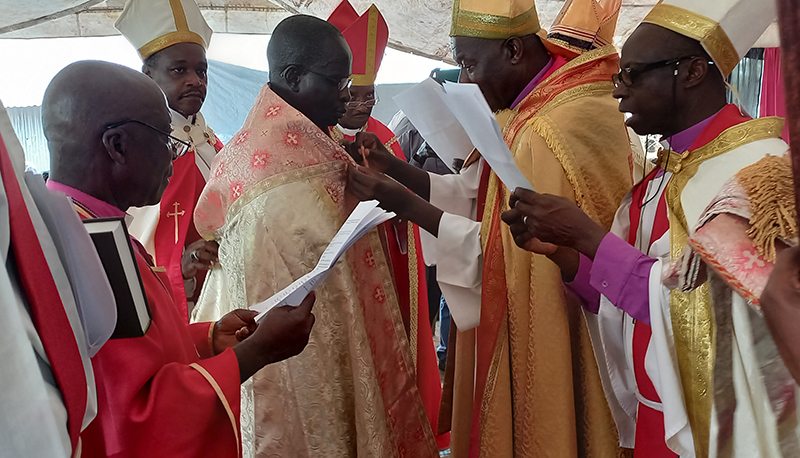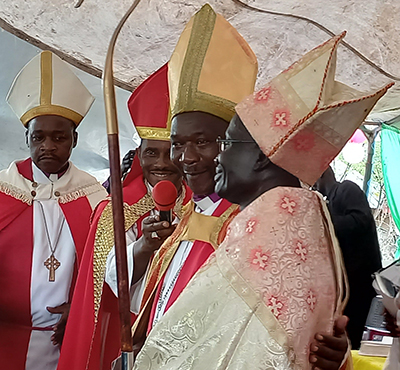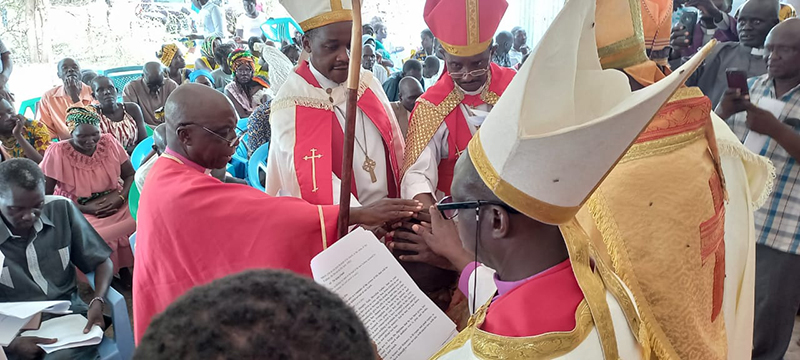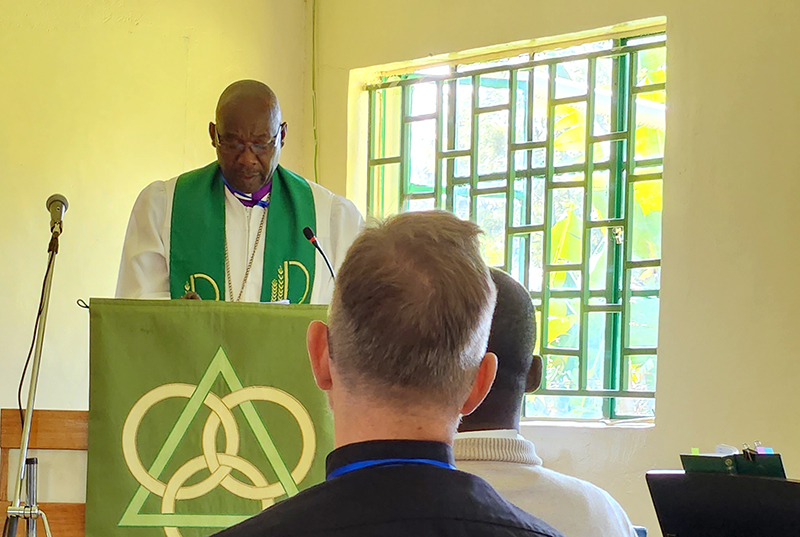
KENYA – On the morning of Thursday, September 14, 2022, participants in the International Lutheran Council’s (ILC) 2022 World Conference made an excursion to Matongo to visit Neema Lutheran College, the seminary of the Evangelical Lutheran Church in Kenya (ELCK), the conference’s host church.
There they joined members of the seminary community for a service of Matins in Swahili. The service also featured a hymn in Swahili which conference participants have been learning throughout the conference: “Yesu Wangu Simwachi.” A seminary student served as liturgist, while ELCK Archbishop Joseph Ochola Omolo preached on John 4, drawing out what it means to worship God in spirit and in truth. A Bible study on 1 Kings 8:22-30 followed, led by Rev. Joseph Abuor, a doctoral student from Kenya.
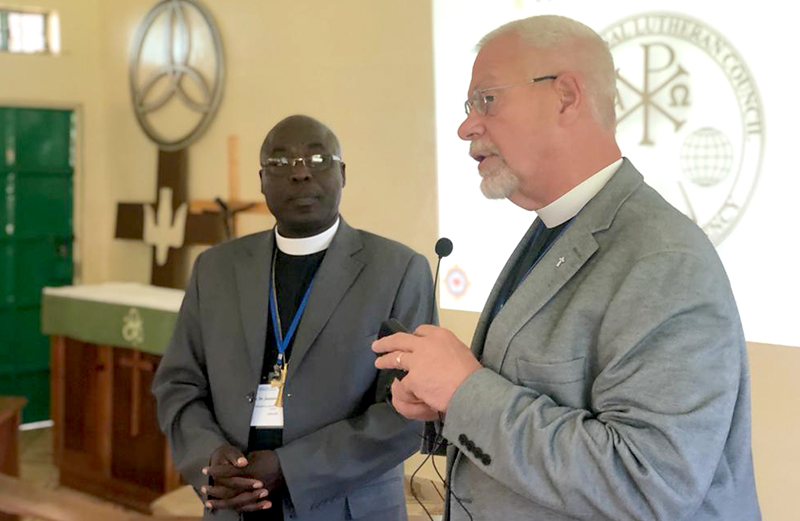
Following this, the conference heard a report from Rev. Dr. Steven Schumacher of the ILC’s International Accreditation Agency (ILCAA). The ILCAA is a new initiative of the ILC that will “strengthen confessional Lutheran theological education,” he explained. The program will ensure that participating seminaries and colleges all provide robust theological training that is recognizable and transferable to other institutions for higher academic study.
In addition to providing standards for an institutions’ educational program and mission and integrity, the ILCAA will also provide standards for: governance, administration, and finances; planning and review; faculty, education, and staff; student services; and resources.
Liturgy, Theology, and Culture
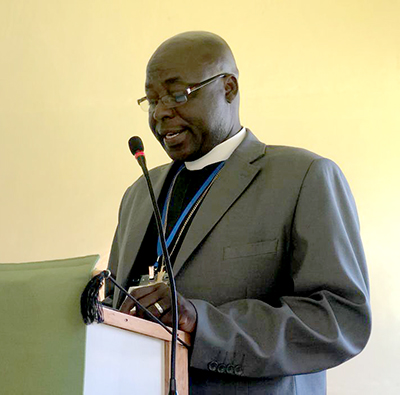
The morning session continued with the third of four major presentations on the conference theme. Rev. Dr. Joseph Tom Omolo, Principal of Neema Lutheran College, gave a lecture entitled “The Relationship Between Liturgy, Theology, and Culture.”
Dr. Omolo argued that, for Christian worship to be appropriately brought into a given culture, it is necessary to “balance the local and the universal natures of Christian liturgy, so that the overarching meaning in liturgy is neither lost nor communicated unintelligibly to the people.” Key to striking this balance is careful fidelity to the doctrine which underlies liturgical expression: “the content of worship,” he explained, must remain “consistent with the church’s doctrine and the overall Christian narrative.”
“Meaningful worship is that in which Christ’s gift of life and salvation is offered to the sinful man in a clear and intelligible language so that the people experience this gift in an understandable way,” Dr. Omolo concluded. But when pursuing such adaptation, he cautioned, “care must be taken so that the liturgy remains Christian in its core and purpose, and continues to bear the marks of the catholicity of the church of Christ. To attain such balance, inculturation must take seriously the complementary dynamics between liturgy and doctrine, so that celebration of the liturgy in different cultures is done within the framework of the Christian language anchored in the biblical narrative.”
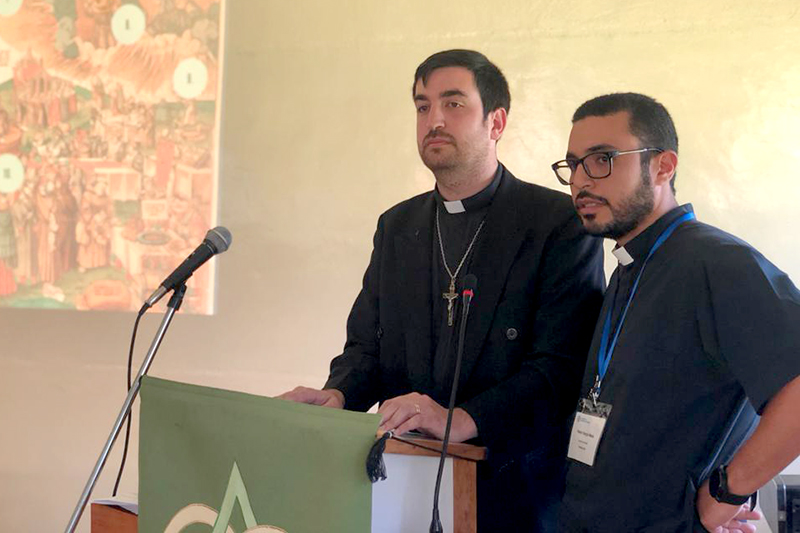
Following Principal Omolo’s presentation, Bishop Juan Pablo Lanterna of the Confessional Lutheran Church of Chile (ILC-Chile), also addressed the subject of liturgy and culture, providing a concrete example in the recently published Spanish hymnal produced in Latin America: Himnario Luterano. The hymnal was first conceived by the Chilean church 14 years ago, eventually growing to become a joint project of the ILC-Chile, the Evangelical Lutheran Church of Paraguay (IELP), and the Evangelical Lutheran Church of Argentina (IELA).
The new hymnal is “a contribution from the mission field to the mission field,” said Bishop Lanterna, “a contribution from Latin America to Latin America, and from confessional Lutherans to confessional Lutherans.”
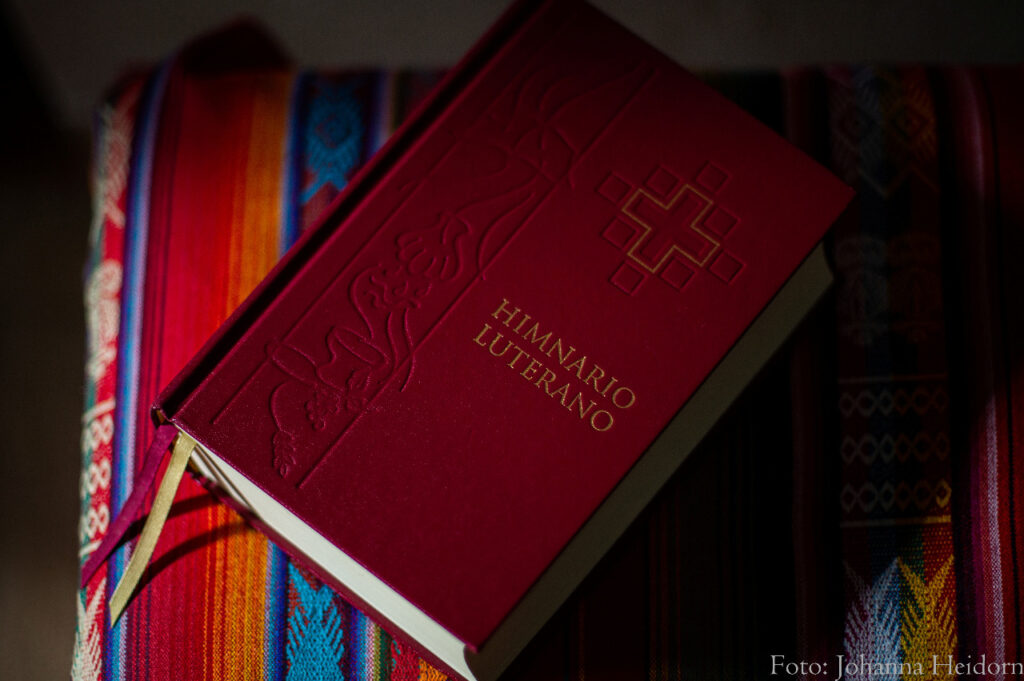
Indeed, Bishop Lanterna continued, the new hymnal can justly be considered the third most important confessional Lutheran publication ever published in Spanish, preceded by Casiodoro de Reina’s classic 1569 translation of the Bible as well as the Spanish translation of the Lutheran Confessions.
The hymnal, which incorporates hundreds of classic and contemporary hymns as well as newly provides services for Matins, Vespers, and Complines, has been received with joy by Spanish-speaking Lutherans. Asked what impact the hymnal will have, the missionaries who began the project were clear: “They unanimously responded,” Bishop Lanterna explained, that it will help Spanish-speaking Lutherans to “revalue and discover confessional Lutheran liturgical theology.”
The morning session concluded with a lunch on the grounds of the seminary.
———————

